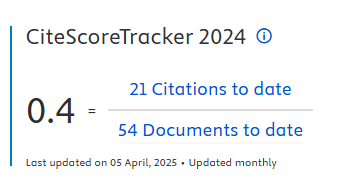E-sports and the application of sports and labor legislation
DOI:
https://doi.org/10.5585/iji.v10i2.21570Keywords:
Electronic sport, Legal regency, Analogy, Legal certainty, Legislative innovation.Abstract
Objective: The present study aims to describe the similarities between e-Sports and the conventional Sports, in order to emulate the viability of conventional Sports law to regulate the relations formalized with cyber athletes, at least until the emergence of a specific legal regulation on e-Sports. The interaction between Labor Law and those relations will be focused too, in order to confer social rights security, especially constitutional human rights involved on that debate.
Methodology: The article is a theoretical approach that seeks to recognize how the dynamics of e-Sports encompass the legal science of Sports Law, based on the deductive method, supported by market analysis, legal research and bibliographic review.
Originality/Relevance: Nowadays some discussions suggest a controversy about the e-Sports legal framework at Brazil, especially about the application of the conventional Sports Law and interaction with the Labor Law discipline. This controversy is not justifiable, either because e-Sports constitute a sport in the authentic sense, or because all work relationships in this field are bound to the legal parameters of adjudication of social rights provided for in the Constitution. This constitutional approach is important because the legitimacy of e-Sports initiatives depends on that, putting on the core of the business consider the real legal limits emerging of the State regulations applicably incidents on contracts signed with cyber athletes. In the course of Revolution 4.0, those approximations between conventional ways and electronic ones will be the tonic of the society transition onto technological new way of life. Describing those interactions is essential to provide new ways of State´s legal regulations, attributing liberty on business dynamics and ensuring social rights on the labor relations. The parameters of ethics on business here emerges as exigencies by ESG (Environment, Social and Governance) administration models, which is embraced by relevant theories, as the John Elkington´s one, especially on his concept of triple bottom line.
Main results: The activity that has been called e-Sports and its vertiginous growth puts pressure on the legal system to reach appropriateness solutions for the controversies that arises from the relationships between players, clubs, associations and all of stakeholders rounding this innovative market. Immediately, the application of Sports and Labor Law emerges as a palliative solution, but specific new regulations are necessary, in order to provide development ways to the businesses, focusing on liberty for the market dynamics and on security for the social rights.
Theoretical/methodological contributions: The article seeks to emulate the attraction of sports and labor legislation for e-Sports regency, guaranteeing legal certainty to the already established relationships, and developing increase ways for business on this market, with citizens social rights preservation, especially constitutional ones.
Downloads
References
Alves, T. M. (2018). Considerações sobre os modelos de exploração dos esportes profissionais aplicados ao e-sports. Revista Síntese direito desportivo, v. 8, n. 41, p. 19-28, abr./jun.
Aquino, T. (2002) in MORRIS, Clarence (org.). Os Grandes Filósofos do Direito, São Paulo: Martins Fontes.
Bastos, G. A. C. (2014) Direito Desportivo. Brasília: Alumnus.
Camara, D. E. G., Lazzarini, G. M. B. & Gherini, P. M. M. (2018) E-sports: visão geral e desafios jurídicos. Recovered in 02/01/2022, of https://baptistaluz.com.br/institucional/esportes-eletronicos-visao-geral-e-desafios-juridicos/
Campoli, C. (2018) Universidades dos EUA ofertam bolsas de estudo a jogadores de e-sports. Recoverd in 02/01/2022, of https://baptistaluz.com.br/institucional/esportes-eletronicos-visao-geral-e-desafios-juridicos/
Costa, F. O. (2014) Questões sobre o atleta em formação e o conflito da proibição de trabalho infantil, In: OLIVEIRA, Leonardo Andreotti P. de (coord.). Direito do Trabalho e Desporto, São Paulo: Quartier Latin.
Elkington, J. (1997) Cannibals with forks: the triple bottom line of 21st century business. Oxford: Capstone.
Estrella, C. F. (2019) Kyle Bugha vence Copa do Mundo de Fortnite 2019 e conquista premiação de R$ 11,3 milhões. Recovered in 02/01/2022, of https://adrenaline.com.br/noticias/v/59857/kyle-bugha-vence-copa-do-mundo-de-fortnite-2019-e-conquista-premiacao-de-rs-113-milhoes
Freeman, R. E. (2010) Strategic Management: A Stakeholder Approach. Cambridge: Cambridge University Press.
Laóz, V. B. (2018) A crescente mundial do esporte eletrônico: uma nova modalidade que merece mais atenção, in VILLELA, Benedito (coord.). Direito Desportivo, Revista Científica Virtual, 27. ed. Recovered in 02/01/2022, of https://issuu.com/esa_oabsp/docs/revista_27_-_direito_desportivo
Miguel, R. G. A. (2013) Atleta: definição, classificação e deveres. In: Belmonte, A. A., Mello, L. P. V., & Bastos, G. C. (org. e coord.). Direito do Trabalho Desportivo, São Paulo: LTr.
Miguel, R. G. A. (2017) A análise dos meios de prova nas ações judiciais relativa aos atletas de esporte eletrônico no âmbito Luso-Brasileiro. In: Revista Síntese. Direito Desportivo, Ano VII – nº 37.
Miguel, R. G. A. (2012) A possibilidade de contratação do atleta menor de futebol e a utilização do instituto da antecipação de tutela para transferência do atleta de futebol, Revista Eletrônica, Direito Desportivo. Recovered in 02/01/2022, of http://portal2.trtrio.gov.br:7777/pls/portal/docs/PAGE/GRPPORTALTRT/PAGINAPRINCIPAL/JURISPRUDENCIA_NOVA/REVISTAS%20TRT-RJ/047/REVISTA%20TRIBUNAL%20REGIONAL%20%20DO%20TRABALHO%20DA%201%C2%AA%20REGI%C3%83O%20N%2047/A%20POSSIBILIDADE%20DE%20CONTRATA%C3%87%C3%83O%20DO%20ATLETA%20MENOR.PDF.
Pazuelos, F. (2017) Os ‘e-Sports’ poderão virar modalidade olímpica nos Jogos de Paris. Recoverd in 02/01/2022, of https://brasil.elpais.com/brasil/2017/08/19/tecnologia/1503139023_302525.html
Pereira, S. K. (2014) O videogame como esporte: uma comparação entre esportes eletrônicos e esportes tradicionais. Monografia. Brasília: Universidade de Brasília, Faculdade de Comunicação.
Rezende, J. R. (2016) Tratado de Direito Desportivo. São Paulo: All Print Editora.
Simões, R. A. (2019) Manifestações desportivas: o desporto educacional, de participação, de rendimento e de formação. Recovered in 02/01/2022, of https://www12.senado.leg.br/jovemsenador/home/arquivos/textos-consultoria/tipos-de-desporto.
Sommadossi, G. (2021). Mais da metade do público brasileiro de eSports é atleta; Free Fire é destaque. Recovered in 02/01/2022, of https://canaltech.com.br/games/pratica-de-esports-aumenta-no-brasil-e-mais-da-metade-do-publico-e-atleta-187914/#:~:text=Novos%20dados%20da%20Pesquisa%20Game,pontos%20percentuais%20comparado%20a%2020
Veiga, M. F. C. (2017) Manual de Direito do Trabalho Desportivo, 2. ed., São Paulo: LTr.
Downloads
Published
How to Cite
Issue
Section
License
Copyright (c) 2022 International Journal of Innovation

This work is licensed under a Creative Commons Attribution-NonCommercial-ShareAlike 4.0 International License.
- Abstract 917
- PDF 610













